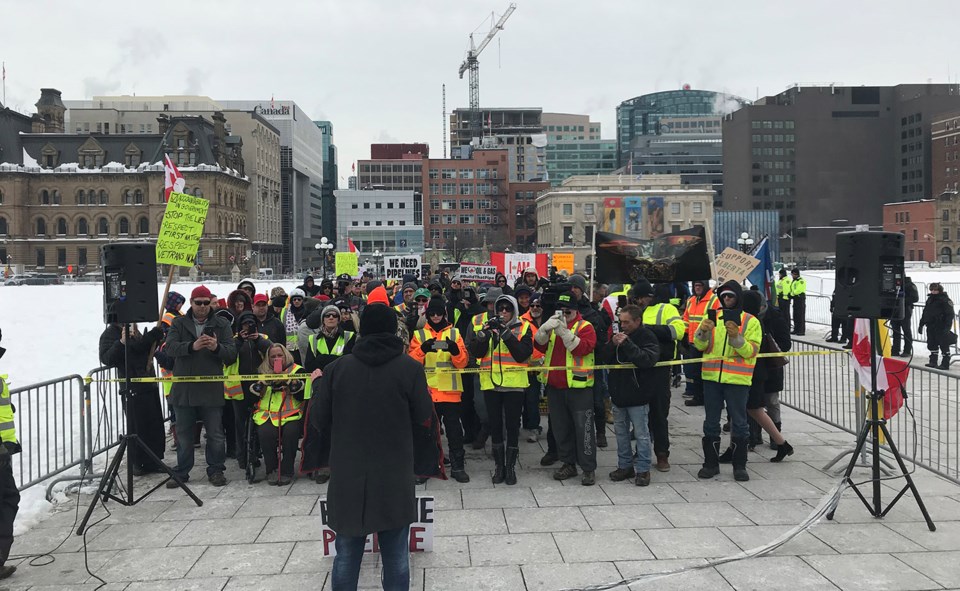Ottawa – On Feb. 20, Prime Minister Justin Trudeau issued a statement in respond to the United We Roll! Convoy for Canada! which was blaring airhorns in front of his office on Feb. 19 and 20.
Trudeau said, “We feel and share the frustration felt by many in Western Canada due to the lack of market access for our oil and gas. After ten years of inaction under Stephen Harper, 99 per cent of our oil exports are still sold at a discount to the United States. As a result, workers in our energy sector have faced real challenges and felt real anxieties. That’s why we’re moving forward in the right way, through meaningful consultation, on projects like the Line 3 replacement and the Trans Mountain Expansion.
“We will always support the right of Canadians to be heard, but it is essential that their message not be co-opted by those who spew intolerant and divisive language.”
The convoy and its participants protested for two days on Parliament Hill, holding their rally in deep snow of Parliament’s front lawn on Day 1 and on the sidewalk on Day 2.
One of the issues the protesters in the United We Roll! convoy were concerned about is Bill C-48, which would formalize an oil tanker ban on the northern coast of British Columbia. Even before the ban was brought forward in legislation, the Liberal government’s move towards a ban, and a court ruling quashing previous approval under the Stephen Harper Conservative government, killed the project.
National Resources Canada’s website states, with regards to Northern Gateway, “The Government of Canada has directed the National Energy Board (NEB) to dismiss the Northern Gateway Pipelines project application. The Government has determined that the project is not in the public interest because it would result in crude oil tankers transiting through the sensitive ecosystem of the Douglas Channel, which is part of the Great Bear Rainforest.
“The rainforest, with its diverse ecosystem of marine life, including whales, sea otters, dolphins and sea lions was admitted to the Queen's Commonwealth Canopy in September 2016.
“A three-member Joint Review Panel was established by the Minister of the Environment and the Chair of the NEB in January 2010. The panel was responsible for the environmental assessment and regulatory review of the project, and in December 2013 it submitted its report to the Government.
“On June 30, 2016, the Federal Court of Appeal quashed the 2014 decision by the previous government and sent the Joint Review Panel’s recommendation back to the current government for reconsideration.
“In making its decision, the Government considered the Joint Review Panel Report, the views of Indigenous communities and those of other Canadians, as represented to the panel, as well as the orders of the Federal Court of Appeal.
“The Government determined the project is likely to cause significant adverse environmental effects that are not justified in the circumstances.”




